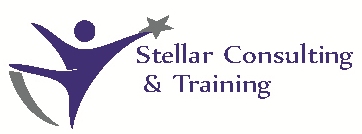The Human Resources Management Diploma program offers an extensive exploration of human resources management roles and responsibilities from a strategic viewpoint. It enhances the participants’ professional expertise and competencies. The program features an intensive curriculum that combines traditional classroom instruction, practical case studies, and executive presentations.
HRM 101 Human Resource Management Overview
This course provides an introduction to the key concepts of managing human resources within organizations. It explores the diverse roles of HRM departments and illustrates how HR policies and practices can align with and support business strategies. The course covers a range of topics, including the strategic function of HRM, job analysis and personnel planning, recruitment and selection processes, training and development, performance management, compensation and retention strategies, and the ethical dimensions of HRM.
HRM 201 Workforce Planning and Staffing
This course delves into how organizations anticipate changes in their workforce, devise recruitment strategies, and develop selection systems to attract the best talent. It covers planning for, establishing, and maintaining a high-quality workforce; identifying key criteria for filling positions; recruiting a talent pool; developing selection methods from the talent pool; and ensuring an optimal person/job and organizational fit.
HRM 202 Total Compensation and Benefits
This course imparts practical knowledge about compensation systems tailored for aspiring HR professionals. The objective is to provide a comprehensive understanding of compensation practices and their role in enhancing a company’s competitive edge. The course assumes that students will be most prepared to become effective compensation strategists with a solid grounding in compensation principles. Therefore, we will explore the context of compensation practice, criteria for employee compensation, design issues of compensation systems, employee benefits, and contemporary challenges that compensation professionals will face throughout the 21st century.
HRM 203 Employee Training and Development
This course addresses the rising importance of training and development in the face of rapid technological advances and evolving job designs. Emphasizing the significance of learning- and knowledge-based organizations, the course will guide students in identifying training and development needs through thorough assessments, analyzing jobs and tasks to set relevant objectives, creating appropriate training goals, designing effective programs using various techniques, implementing diverse training activities, and evaluating the outcomes of these programs.
HRM 301 Managing Human Behavior in Organizations
This course acquaints students with fundamental principles of human behavior that proficient managers apply when overseeing individuals and groups within organizations. Topics covered include theories on individual differences in abilities and attitudes, attribution, motivation, group dynamics, power and politics, leadership, conflict resolution, organizational culture, and organizational structure and design.
HRM 302 Managing the Employment Relationship: HRM, Society and the Law
This course aims to enhance students’ understanding of legislation and practices related to employment and labor law within the workplace. It introduces the fundamental aspects of the employer-employee relationship and offers a comprehensive overview of legal issues impacting human resources management. The course emphasizes the influence of law on individuals in organizations, the identification of legal problems, and the legal implications of HR decisions. Additionally, it integrates employment and labor laws with the social and economic forces that shape today’s diverse management-labor environment.
HRM 401 Strategic Management
This course emphasizes the systematic approach companies use to plan, develop, execute, and evaluate functional decisions to achieve their long-term goals. It centers on defining the company’s mission, vision, strategies, and corporate goals, and developing the internal plans, policies, and procedures necessary for successful project and program completion. Students will learn how to understand competitor positioning, set clear goals, and review business strategies to better manage various changing factors (political, economic, social, technological, environmental, and legal) that may impact overall performance and operations. The course covers the SWOT concept, aligning divisional/departmental/unit goals with a well-defined business mission and vision, and examines the McKinsey 7S model for strategic management of company assets and operations. This includes monitoring business results, benchmarking, evaluating process efficacy and efficiency, controlling factors, and managing change.
HRM 402 Advanced Topics in Human Capital Management
This course aims to provide students with insights into contemporary and future HRM challenges. It covers advanced human resource management theories and practices that positively impact organizational results and promote favorable employee attitudes and behaviors. The course helps students understand the various aspects of HRM, offering knowledge of the tools and techniques used by modern Human Resource Managers. Key topics include the significance of managing intangible assets, knowledge management and learning organizations, flexibility, empowerment, and ethics.

